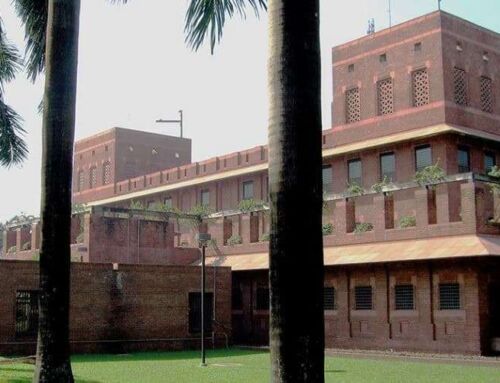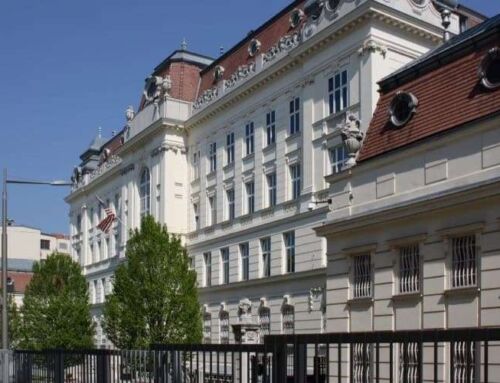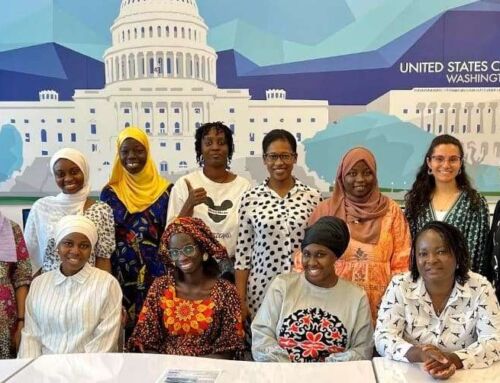It’s a great question if you’re thinking about applying for the Foreign Affairs Information Technology (FAIT) Fellowship program. As a FAIT Fellow, you’ll be on a track to become a Foreign Service Diplomatic Technology Officer (DTO). After you earn your IT-related degree and successfully complete the Department of State’s entry requirements, you’ll become a Foreign Service DTO and be assigned to your first post at an embassy or consulate overseas.
Job responsibilities of a Foreign Service Diplomatic Technology Officer
As a Foreign Service DTO, you would be responsible for the State Department’s Diplomatic Technology (DT) programs and Information Technology (IT) systems worldwide. Your assignment may be at any one of more than 270 posts overseas, in Washington, D.C., or elsewhere in the United States. Your duties would vary, according to the size of the post and the requirements of the specific diplomatic mission.
You can view video interviews in which we asked each IT professional to describe a typical workday. Their responses were that there are no “typical days” in the life of a DTO. The interviews demonstrate the wide variety of duties in this role.
Job responsibilities of a DTO may include:
Customer Service Skills:
- Provide assistance to users of information management services (for example, by configuring and optimizing software).
- Train users in the use of new software applications, providing guidance and assistance with new or amended IT-related policies and procedures.
- Promote end-user involvement in technology and technical decision-making.
Information Technology Skills/Problem solving:
- Administer computer systems and manage system performance; set up networks; start up, operate, and shut down systems.
- Manage user access; train new personnel; identify and resolve problems; report, track and research incidents; counsel users; set up customer equipment; and replace equipment and parts.
- Manage and operate classified and unclassified client/server solutions, desktop systems, messaging solutions, web-based technology, database solutions, and virtual servers to support LAN/WAN.
- Manage telecommunication network services.
- Manage communications equipment; install cabling; provide circuits; support video conferencing; manage communications flow; coordinate with host country officials; and manage wireless communications and Wi-Fi programs.
- Manage voice communication services; coordinate equipment provision; manage the telephone and radio programs, the personal mobile device program, and VoIP convergence devices.
Information Management Skills/Problem solving:
- Implement IT projects gathering requirements, designing solutions and assisting with development.
- Acquire IT products and services, test solutions, deploy products, and maintain IT procurement and inventory.
- Manage cloud requirements and support collaboration tools and IT Shared Services efforts.
- Manage pouch programs, diplomatic post office, and telephone operator program.
- Supervise locally employed staff system administrators, mailroom employees, telephone technicians, radio technicians and switchboard operators.
- Manage work assignments and individual performance.
- Serve as part of the embassy or consulate management team and perform additional duties outside of normal information resource management activities, as determined by embassy or consulate management, or as dictated by special circumstances.
- Support emergency planning and response and manage emergency wireless communications.
- Ensure emergency destruction capability.
- Maintain alternate processing site.
- Manage emergency digital communications.
- Keep current with specialty, gain and maintain certifications.
Information Security:
- Maintain internal controls on Department of State automated information systems.
- Protect classified documents and classified communications equipment and workspace.
- Promote communications security.
- Update security settings, manage physical security, monitor security, and network security, etc.
- Manage telephone system security.
- Manage the Public Key Infrastructure (PKI) program.
The position does have some physical requirements, which can be met with or without accommodations. You can find information on physical requirements here.
Upon entering the Foreign Service, all entry-level IT specialists receive initial training in Washington, D.C., for about six months before going overseas for their first tour. An entry-level DTO is usually assigned to two consecutive overseas tours, each two years in length, directed by the Department. After the initial two tours, assignments will be for periods of one to three years overseas or in the U.S.
Entry-level DTOs are paid at grade FP 05 or FP 04 on the Foreign Service Salary Schedule. The salary, dependent on education, specialized experience, and location, currently ranges from $64,803(FP 05/1 FS Overseas Comparability pay scale) to $128,106 (FP 04/14 Washington D.C. locality pay scale).
If you are comparing the Foreign Service salary to other private or public sector job salaries, keep in mind that a career with the U.S. Government provides employees with a comprehensive benefits package. As a federal employee, you and your family will have access to a range of benefits that are designed to make your federal career very rewarding. Health and medical coverage, federal retirement benefits, paid leave, and an unprecedented chance to see the world and experience different cultures. Benefits while posted overseas include tax-free housing and a tax-free education allowance for dependent children in grades K-12.
As you can see, DTOs have many different responsibilities – and this is just a snapshot of what you would be doing in this exciting role to support diplomacy around the world.
Read articles written by DTOs in our Stories from the Field series published in Diplomatic Roots.






